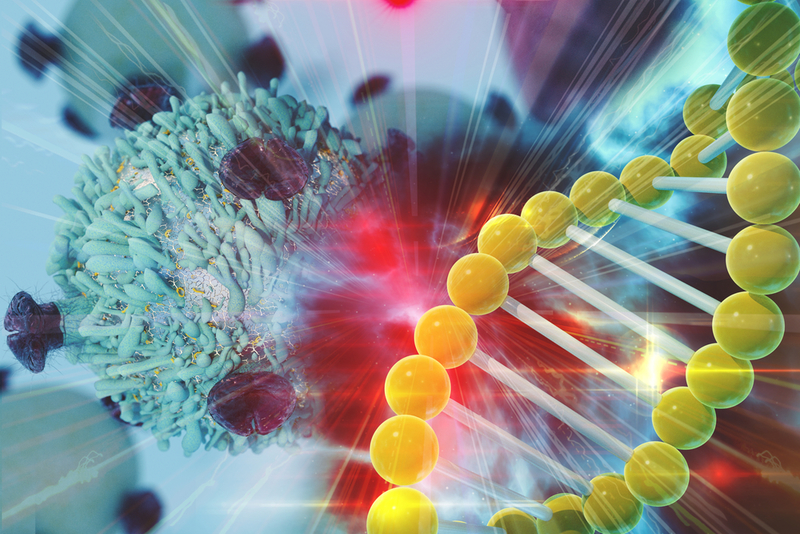Why you should consider precision genomics?
M3 India Newsdesk Oct 19, 2018
Dr. Ashwini Ghaisis, Director for Applications of a cutting-edge precision medicine and genomics centre in Mahrashtra, gives a peek into the positive possibilities and the phenomenal change that precision genomics is bringing to cancer diagnosis and treatment.

Precision genomics in cancer is touted as a game-changer for doctors and patients, offering much better standards of diagnostics, therapy guidance, and prognostic arsenal at their disposal.
Precision Genomics-Tailoring treatment to a patient's unique genetic make-up
Precision genomics in research and clinical practice has been showing great potential in allowing doctors to tailor treatment therapies suited to a patient’s unique genetic profile. Apart from this, genomics also finds great use in the assessment of mutations in high-risk patients, diagnostics and early detection, and prognosis.
Cancer, being a disease born out of dangerous mutations within genes, is an especially pertinent disease which can be studied in detail by studying human cells and their genetic makeup.
Precision Genomics will identify the unique characteristics of an individual’s tumour
Genomics, especially in oncology gives doctors a very precise action plan for the patient. The earlier approach was based on using one-size fits all approach and using a standardised protocol, which in some cases did not work well for particular individuals, due to the variability in individual response to drugs.
What precision genomics can do is to identify the unique characteristics that an individual’s tumour displays at a molecular level.
Live viable tumour cells are cultured and the information is obtained about their susceptibility and possible response to therapies. Moreover, the sheer analytical power of AI-based algorithms allows doctors to develop a precise, tailored treatment plan without any possibility of human error in diagnosis and staging.
Specific advantages precision genomics offers over conventional methods
One of the main cornerstones of cancer diagnosis is histopathological analysis once the biopsy has been completed. This allows doctors to understand the type of cancer, its differentiation, and the treatment plan.
However, even here, certain genetic level differences can affect the treatment response to certain drugs.
The most well-known of which is probably the shift from response to non-response of patients to Trastuzumab (Herceptin), based on the expression of HER2, which can be tracked in real time during cancer treatment.
There are many such mechanisms which work in various other tumours which need to be tested for getting an optimum and sustained response from therapies.
Another example is the testing for microsatellite instabilities in colon cancer, which can affect treatment plans and prognosis.
The approach of trying a generalised treatment protocol and changing it if the tumour does not respond leads to a waste of valuable time and money, while also delaying proper care. With precision genomics, doctors can now combine the traditional tests which can give them a treatment plan with molecular-level evidence, making it more effective and potentially life-saving while preventing those therapies which do not work.
Liquid Biopsy
Tumours can sometimes be missed on imaging scans if they are not big enough. However, another new technique that now complements early detection of recurrence or lack of optimal response to therapy is liquid biopsy.
Liquid Biopsy
This is a simple method which only requires a blood sample which can then be sequenced to obtain a detailed, molecular-level picture of whether cancer is still present or has recurred in the person’s system.
Doctors who suspect that a patient may be carrying cancer but the tumour does not show up on imaging scans can quickly refer them for a liquid biopsy which can detect cell-free tumour DNA in the blood sample.
Liquid biopsies can also be effective tools for checking if a patient is responding to treatment. In some cases, if done at regular intervals during treatment, this test can also signify if the molecular dynamics of a tumour are changing, which can suggest that it may be time to tweak the treatment plan. This is also true for checking of recurrences or relapses.
What lies ahead?
Genomics and the way that it is revolutionising the understanding of cancer will surely help target cancers with precision, while reducing the side-effects associated with current forms of treatments.
Pharmacogenetics
This is another field where genomics plays a big role. The USFDA has now approved pharmacogenetics as a tool to determine individualised dosage, and these applications are not limited to cancer but also extend to other medications.
In India, most doctors remain unaware of pharmacogenetics, and this leads to serious drug reactions and interactions. If doctors are armed with the information of what medications will work best for particular patients, they can tailor their treatment accordingly.
For critical diseases such as cancer, this is especially useful since getting to the best possible treatment plan at the outset gives patients a much better experience of treatment, while avoiding unnecessary medications and unpleasant side effects.
-
Exclusive Write-ups & Webinars by KOLs
-
Daily Quiz by specialty
-
Paid Market Research Surveys
-
Case discussions, News & Journals' summaries